Essential Nutrients for Healthy Marijuana Plant Growth
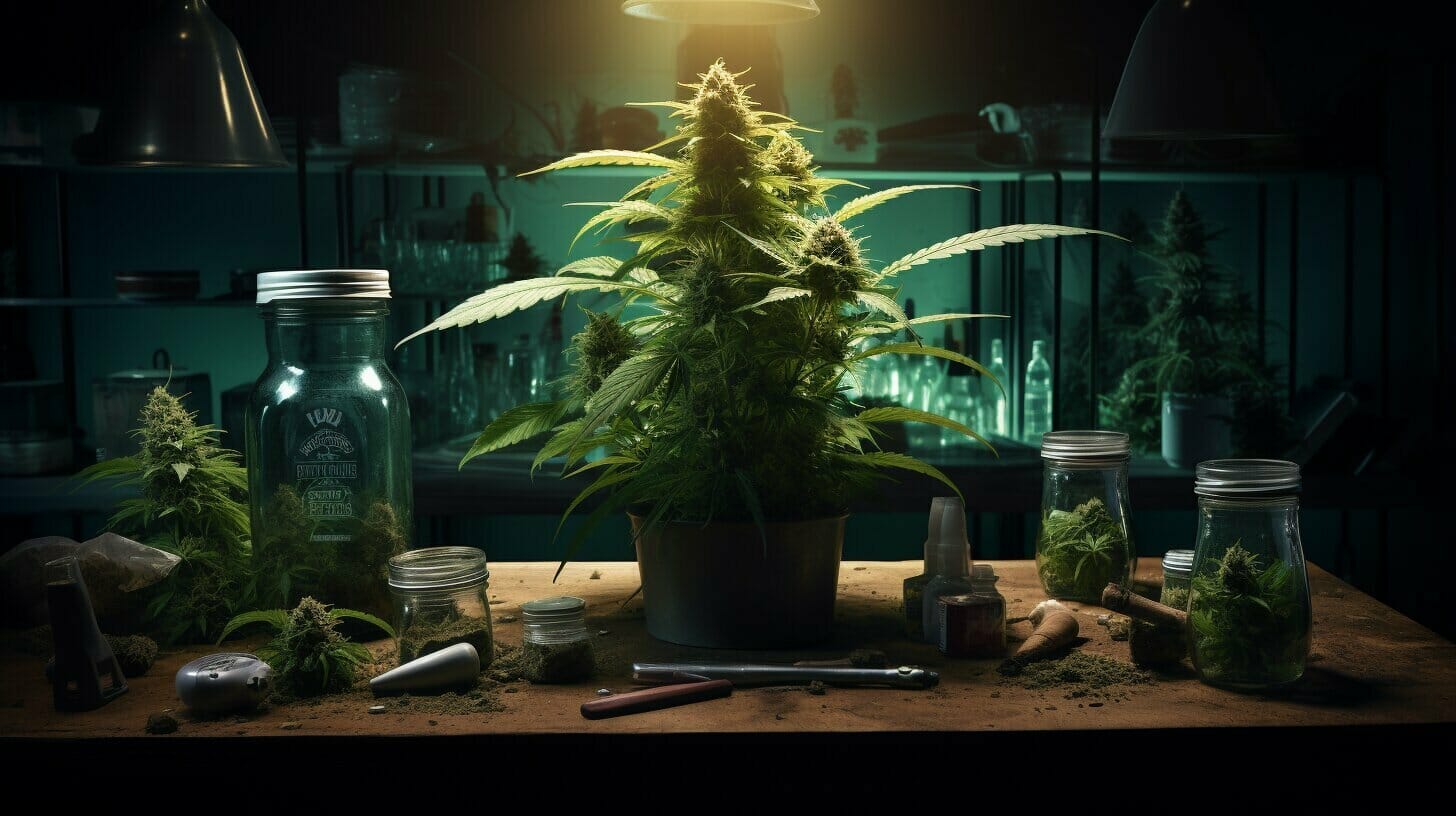
Marijuana cultivation is a delicate art that requires careful attention to detail, including the provision of essential nutrients. Ensuring your plants receive the right balance of macronutrients and micronutrients is crucial for healthy growth and optimal yields. In this article, we will delve into the world of cannabis plant nutrition, exploring the various nutrients for marijuana, common nutrient deficiencies, and ways to address them. Whether you’re a seasoned grower or a novice, you’ll find valuable insights to help you achieve success in your cannabis cultivation endeavors.
Key Takeaways:
- Essential nutrients are crucial for healthy marijuana plant growth.
- The right balance of macronutrients and micronutrients is essential.
- Common nutrient deficiencies can impact plant growth and yield.
- Proper nutrient application techniques can improve plant health and maximize yield.
Understanding the Nutritional Needs of Marijuana Plants
Horticulturists and cannabis enthusiasts know that the key to healthy and abundant marijuana plant growth lies in providing them with the right nutrients. In this section, we’ll delve into the specific nutrient requirements and essential elements required for optimal cannabis growth.
The Basics of Nutrient Requirements for Cannabis Cultivation
Before we dive into the specifics, let’s first establish that marijuana plants require three primary macronutrients: nitrogen (N), phosphorus (P), and potassium (K). These macronutrients are essential for photosynthesis, root growth, and overall plant health.
In addition to these primary macronutrients, marijuana plants also require secondary macronutrients and micro-nutrients. Secondary macronutrients include calcium (Ca), magnesium (Mg), and sulfur (S), while micro-nutrients include iron (Fe), manganese (Mn), zinc (Zn), and many others. Providing a balanced fertilizer that delivers all of these necessary nutrients is critical for healthy cannabis growth.
Essential Elements for Optimal Cannabis Growth
In addition to the aforementioned nutrients, marijuana plants require several key elements for optimal growth:
| Element | Function |
|---|---|
| Carbon (C) | Required for photosynthesis to occur |
| Oxygen (O) | Also required for photosynthesis, as well as respiration |
| Hydrogen (H) | Required for water uptake and photosynthesis |
| Calcium (Ca) | Plays a role in cell wall structure and nutrient transport |
| Magnesium (Mg) | Essential for chlorophyll production and overall plant health |
| Sulfur (S) | Involved in protein synthesis and overall plant growth |
Furthermore, marijuana plants require an appropriate pH level for optimal nutrient uptake. The ideal range is typically between 5.5 and 6.5, depending on the medium being used.
Understanding the specific nutrient requirements and essential elements needed for optimal cannabis growth is the first step in promoting healthy marijuana plant growth. In the next section, we’ll focus on the importance of macronutrients and how to provide a balanced fertilizer for marijuana plants.
The Role of Macronutrients in Marijuana Plant Health
Marijuana plants require a variety of minerals and nutrients to grow healthy, and macronutrients are among the most essential. These nutrients are required in larger amounts than micronutrients and are critical to facilitating key plant functions like photosynthesis and the production of chlorophyll.
| Macronutrient | Function | Deficiency Symptoms |
|---|---|---|
| Nitrogen | Facilitates vegetative growth and leaf development, key component of chlorophyll and amino acids | Pale, yellowing leaves, stunted growth, reduced yield |
| Phosphorus | Facilitates energy conversion and root development, key component of DNA and cell membranes | Purpling leaves, weak stems, poor root development, reduced yield |
| Potassium | Regulates water balance, facilitates nutrient transport, key component of protein synthesis and enzyme activation | Necrotic spots on leaves, poor root development, lower yield |
It’s important to provide a balanced fertilizer that includes a healthy ratio of each of these macronutrients. Too much of one and not enough of another can lead to nutrient toxicity or deficiency, which can stunt growth and reduce yield. Be sure to monitor your plants regularly and adjust your nutrient application as needed to ensure they receive the right balance.
Takeaway:
Remember, macronutrients are critical to facilitating key plant functions like photosynthesis and the production of chlorophyll. Make sure to provide a balanced fertilizer and monitor regularly to avoid nutrient toxicity or deficiency.
The Significance of Micronutrients for Marijuana Plants
While macronutrients get all the attention, micronutrients are just as important for healthy marijuana plant growth. These elements are required in smaller quantities but are essential for various metabolic processes. Without adequate micronutrients, marijuana plants may experience stunted growth, nutrient deficiencies, and reduced yields.
Some of the essential micronutrients required for marijuana plants include:
| Micronutrient | Function |
|---|---|
| Boron (B) | Helps with the uptake of calcium, cell wall development, and hormone regulation. |
| Copper (Cu) | Required for photosynthesis, enzyme function, and chlorophyll production. |
| Iron (Fe) | Crucial for chlorophyll production and energy transfer in the plant. |
| Manganese (Mn) | Helps with enzyme function and plays a role in chlorophyll production. |
| Molybdenum (Mo) | Essential for nitrogen uptake and protein synthesis in the plant. |
| Zinc (Zn) | Required for enzyme function and hormone regulation. |
It’s important to maintain a balance of these micronutrients to prevent toxicity or deficiency. Micronutrient deficiencies can be difficult to diagnose, but some common symptoms include yellowing or browning of leaves, stunted growth, and leaf curling.
To prevent micronutrient deficiencies, it’s essential to use a balanced fertilizer that contains all the necessary elements. You can also use a micronutrient supplement to ensure your marijuana plants receive adequate amounts of these crucial elements.
By paying attention to micronutrient requirements, you can ensure your marijuana plants have everything they need for optimal growth and yield.
Choosing the Best Nutrients for Marijuana Plants
Now that you understand the essential nutrients and their role in cannabis cultivation, it’s time to choose the best nutrients to keep your plants thriving. Don’t worry, it’s not a daunting task!
Firstly, choose high-quality nutrients that are specially formulated for marijuana plants. These products are balanced and designed to meet all the essential needs of cannabis growth, making it easy for you to maintain a healthy plant.
If you want to go organic, you can opt for organic nutrients that are derived from natural sources like worm castings, bat guano, and kelp. You’ll get all the necessary minerals without the use of synthetic additives. Plus, you’ll also be doing your part in preserving the environment, which is a win-win.
On the other hand, you can choose synthetic nutrients that are chemically formulated and tailored to meet the specific needs of your cannabis plants. They’re a great option if you’re looking for a quick and easy solution that delivers fast results.
Ultimately, the choice between organic and synthetic nutrients depends on your personal preference and cultivation goals. Whether you choose organic or synthetic, make sure to follow the recommended dosage and feeding schedules to avoid nutrient burn or deficiencies.
Pro Tip: Don’t forget to check the pH level of your nutrient solution regularly. A pH level that is too high or too low can prevent the absorption of essential nutrients, stunting the growth of your cannabis plants.
Organic vs. Synthetic Nutrients for Marijuana Cultivation
When it comes to feeding your beloved cannabis plants, the age-old debate of organic versus synthetic nutrients always seems to come up. But which one is truly the “greenest” option? Let’s dig into the pros and cons of each.
Organic Nutrients for Marijuana Plants – The Pure, Natural Choice?
Organic nutrients are derived from natural sources such as bone meal, blood meal, and guano. They’re an environmentally friendly choice, as they’re free from harmful chemicals and help to enrich the soil in the long term.
However, organic nutrients can be more expensive, less potent, and more difficult to use than synthetic nutrients. They may also require more space for storage, as they come in large bags or containers. Organic nutrients also tend to have slower release rates, meaning that they may not provide the immediate growth boost that your plant needs.
Overall, organic nutrients are an excellent choice for those looking for a natural, sustainable way to grow their cannabis plants. If you have the time, space, and patience, organic nutrients could be the perfect fit for your garden.
Synthetic Nutrients for Marijuana Plants – The High-Octane Fuel?
Synthetic nutrients, on the other hand, are chemically engineered to provide the optimal balance of nutrients for your plants. They’re often more cost-effective, more potent, and easier to use than organic nutrients. They come in pre-measured doses, making it easy to give your plants exactly what they need.
However, synthetic nutrients can be harmful to the environment, as they contain chemicals that can build up in the soil over time. They can also lead to a build-up of salts in the soil, which can be harmful to your plants if not flushed out properly.
Overall, synthetic nutrients are an excellent choice for those looking for a quick, efficient way to grow their cannabis plants. If you’re short on space, time, or patience, synthetic nutrients could be the right choice for you.
“Organic or synthetic? It all depends on your budget, your values, and your patience. Kind of like choosing a partner, really.”
Whichever option you choose, remember to always follow the instructions carefully and monitor your plants closely for any signs of nutrient deficiencies or toxicities. Happy growing!
Nutrient Application Techniques for Marijuana Plants
Let’s face it, feeding your plants is not as simple as pouring a bowl of cereal. There are various techniques you can use to apply nutrients to your marijuana plants, including foliar feeding and hydroponic systems.
Foliar feeding involves spraying a nutrient solution onto the leaves of your plants, allowing them to absorb the nutrients through their stomata. This method is especially useful when your plants are experiencing nutrient deficiencies, and you need to quickly deliver a boost of the required nutrients.
| Pros | Cons |
|---|---|
| Quick nutrient delivery | Risk of burning leaves |
| Can be used on plants in any growth stage | Nutrients may not reach roots |
Hydroponic systems, on the other hand, involve growing your plants in a water-based nutrient solution. This method allows your plants to absorb nutrients directly through their root systems, promoting fast growth and high yields.
“If you want to take your plants to the next level, consider investing in a hydroponic setup. It’s like a spa day for your plants!”
| Pros | Cons |
|---|---|
| Fast plant growth | Expensive setup |
| High yield potential | Requires advanced knowledge and skills |
Ultimately, the choice of nutrient application technique depends on your grow space, budget, and personal preferences. Experiment with different methods and find what works best for you and your plants.
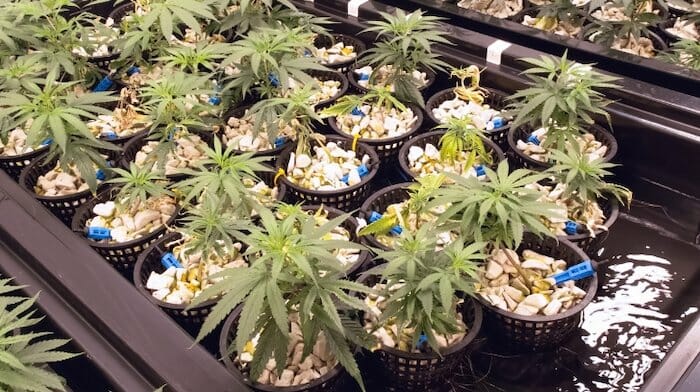
The Significance of Micronutrients for Marijuana Plants
While macronutrients are critical for healthy marijuana plant growth, micronutrients are just as important. These essential minerals are required in smaller quantities but are no less vital for optimal cannabis growth.
Common micronutrient deficiencies include boron, zinc, copper, and iron, which can result in stunted growth, yellowing of leaves, and reduced yield. Spotting these deficiencies early on is crucial for preventing long-term damage to your plants.
| Micronutrient | Role in Marijuana Plant Growth | Sources |
|---|---|---|
| Boron | Essential for cell wall development and calcium uptake | Borax, boric acid, colemanite |
| Zinc | Required for enzyme function and growth hormone production | Zinc sulfate, zinc oxide, chelated zinc |
| Copper | Important for chlorophyll production and photosynthesis | Copper sulfate, copper oxide, copper chelate |
| Iron | Crucial for chlorophyll synthesis and energy transfer | Ferrous sulfate, iron chelate, iron oxide |
To avoid micronutrient deficiencies, it’s essential to provide a balanced fertilizer for your marijuana plants. A fertilizer that contains both macronutrients and micronutrients will help ensure your plants are getting everything they need to thrive.
Remember: Just like with your diet, a balanced nutrient intake is key for healthy marijuana plants. Don’t skimp on the micronutrients!
Nutrient Timing and Feeding Schedules for Marijuana Plants
If you’re growing marijuana, you already know that it takes a lot of love, care, and attention to detail to grow a successful crop. And one of the most important aspects of that care is getting the nutrient timing and feeding schedule right.
While the nutrient requirements of marijuana plants vary from strain to strain, there are a few general guidelines you can follow when it comes to feeding your plants.
Vegetative Stage
During the vegetative stage, your plants need a variety of nutrients to grow strong and healthy. Nitrogen is especially important during this stage, as it helps build the foundation for healthy leaves and stems.
It’s best to start with a balanced fertilizer that contains equal amounts of nitrogen, phosphorus, and potassium. Once your plants are a few weeks into the vegetative stage, you can increase the amount of nitrogen to support healthy growth.
Flowering Stage
When your plants reach the flowering stage, they’ll need a different set of nutrients to support the growth of buds and flowers. Phosphorus and potassium are especially important during this stage, as they help promote healthy root development and flower growth.
It’s best to switch to a fertilizer that’s higher in phosphorus and potassium during the flowering stage. Many growers also recommend adding a bloom booster to their feeding schedule to encourage larger, denser buds.
Feeding Schedule
When it comes to feeding your plants, it’s important to establish a consistent schedule. Most growers recommend feeding their plants every other day during the vegetative stage and increasing to daily feedings during the flowering stage.
Of course, you’ll want to monitor your plants carefully and adjust your feeding schedule as needed. If you notice signs of nutrient deficiency or excess, you may need to adjust your feeding schedule or switch to a different fertilizer.
With the right nutrients and feeding schedule, you can help your marijuana plants grow strong, healthy, and ready for a successful harvest.
Maximizing Nutrient Uptake in Marijuana Plants
It’s not just about providing the right nutrients to your marijuana plants, it’s also about ensuring they are being absorbed efficiently. Here are some tips and tricks to maximize nutrient uptake and take your cannabis cultivation to the next level.
- Feed little and often: Rather than giving your marijuana plants one big nutrient boost, try feeding them smaller amounts at more frequent intervals. This will help to avoid nutrient overload and will ensure that your plants are getting what they need, when they need it.
- Monitor pH levels: pH levels can have a significant impact on nutrient uptake. Make sure you are regularly testing the pH levels of your soil or hydroponic system, and adjust accordingly. Aim for a pH range of 6.0 to 7.0 for soil and 5.5 to 6.5 for hydroponics.
- Use beneficial microbes: Microbes such as mycorrhizae can help to break down nutrients in the soil and make them more available to your cannabis plants. Consider using a soil amendment containing these beneficial microbes to boost nutrient uptake.
- Provide adequate lighting: Adequate lighting is crucial for photosynthesis, which is when your plants convert nutrients into energy. Make sure your plants are getting enough light to maximize nutrient uptake and promote healthy growth.
“Remember, happy plants are healthy plants.”
By following these tips and tricks, you can ensure that your marijuana plants are getting the most out of the nutrients you provide. Keep in mind that every plant is unique, and different strains may have varying nutrient requirements. With a little patience and experimentation, you’ll find the perfect nutrient regime for your cannabis cultivation.
The Importance of Providing Essential Nutrients for Marijuana Plant Growth
As any experienced marijuana grower knows, providing essential nutrients is crucial for healthy plant growth and maximum yields. Nutrient deficiencies can lead to stunted growth, poor bud development, and decreased potency. So, let’s take a closer look at the key takeaways from this article.
Know the Nutritional Needs of Your Marijuana Plants
Understanding the specific nutrient requirements of your marijuana plants is essential for optimal growth. As we’ve discussed, macronutrients like nitrogen, phosphorus, and potassium are particularly critical. However, micronutrients like calcium, magnesium, and zinc also play a crucial role in plant health.
Choose the Best Nutrients for Your Plants
Choosing the right nutrients for marijuana plants can be overwhelming, but it doesn’t have to be. Look for high-quality fertilizers and supplements that provide the necessary macronutrients and micronutrients in the right ratios. We recommend starting with a balanced fertilizer and supplementing with additional nutrients as needed.
Organic vs. Synthetic Nutrients
The debate between organic and synthetic nutrients is ongoing, and each has its pros and cons. Organic nutrients can promote soil health and microbial diversity, while synthetic nutrients offer precise control over nutrient ratios and faster absorption rates. Ultimately, the choice comes down to personal preference and growing style.
Prevent and Address Nutrient Deficiencies
Preventing and addressing nutrient deficiencies is vital to maintaining a healthy garden. Keep a close eye on your plants and look for symptoms of nutrient deficiencies, such as yellowing leaves or stunted growth. Address deficiencies promptly by adjusting your nutrient program and pH levels.
Maximize Nutrient Uptake
Maximizing nutrient uptake is crucial for healthy plant growth and maximum yields. Techniques like foliar feeding and hydroponic systems can help ensure your plants receive the optimal amount of nutrients. However, be careful not to overfeed your plants, as this can lead to nutrient burn and decreased yields.
Essential Nutrients for Marijuana: Conclusion
Providing essential nutrients for marijuana plants is a must in order to maximize yield and overall quality. By understanding your plants’ nutritional needs, choosing the right nutrients, and preventing and addressing nutrient deficiencies, you can ensure a successful grow. So, keep these tips in mind, and happy growing!
FAQ
Q: What are the essential nutrients for marijuana plants?
A: Essential nutrients for marijuana plants include macronutrients such as nitrogen, phosphorus, and potassium, as well as micronutrients like iron, zinc, and magnesium.
Q: What are the specific nutrient requirements for optimal cannabis growth?
A: Optimal cannabis growth requires a balanced combination of macronutrients and micronutrients, tailored to the specific needs of the plants at each stage of growth.
Q: What is the role of macronutrients in marijuana plant health?
A: Macronutrients play a vital role in marijuana plant health, providing the necessary building blocks for growth, energy production, and overall plant vigor.
Q: Why are micronutrients significant for marijuana plants?
A: Micronutrients are essential for marijuana plant health as they support various biochemical processes, enzyme functions, and overall plant development.
Q: How do I choose the best nutrients for marijuana plants?
A: When choosing nutrients for marijuana plants, it’s important to consider factors like nutrient composition, plant stage, and the desired cultivation method.
Q: What are the pros and cons of organic vs. synthetic nutrients for cannabis cultivation?
A: Organic nutrients offer natural and sustainable options, while synthetic nutrients provide precise and easily accessible formulations. The choice depends on personal preferences and cultivation goals.
Q: What are the nutrient application techniques for marijuana plants?
A: Nutrient application techniques for marijuana plants include foliar feeding, hydroponic systems, and soil-based fertilization methods, each with its own advantages and considerations.
Q: What are common nutrient deficiencies in marijuana plants?
A: Common nutrient deficiencies in marijuana plants can manifest through symptoms like yellowing leaves, stunted growth, and nutrient-specific discolorations. Proper identification and treatment are crucial.
Q: How should I time nutrient application and feeding schedules for marijuana plants?
A: Nutrient timing and feeding schedules for marijuana plants should be adjusted according to the plant’s growth stage, with different nutrient requirements during vegetative and flowering phases.
Q: How can I maximize nutrient uptake in marijuana plants?
A: To maximize nutrient uptake in marijuana plants, techniques such as pH control, proper watering practices, and the use of microbial inoculants can enhance nutrient absorption and utilization.
Suggested Articles
;)
;)
;)



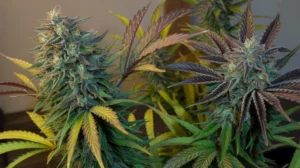
 02 Feb 2026
02 Feb 2026  6 min read
6 min read
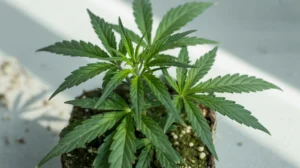
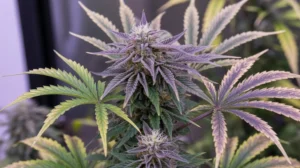
 August 10, 2023
August 10, 2023 


RESPONSES (0)
No responses yet. Be the first to respond!